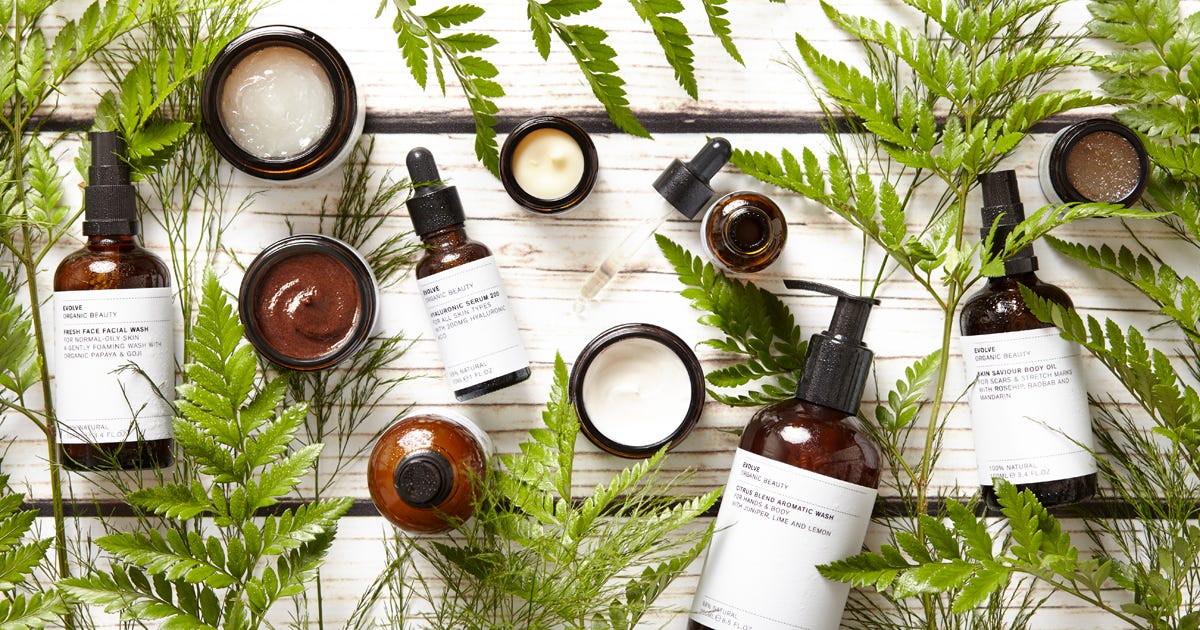🌱 Recycling Reward Schemes: The Route to a More Circular Cosmetics Industry?
Ft. Jacked Foods x What3Words
Happy Friday!
What we’re covering this week:
Why it’s good business for beauty brands to introduce a returns scheme.
How Jacked Foods communicate their entire supply chain in just 3 words.
In case you missed it: Why Evolve Beauty wants to be regenerative.
> Good News This Week
🎯 Fussy, a re-fillable deodorant line, are now Certified Carbon Neutral in partnership with Climate Partner.
🎯 PANGAIA unveiled new ‘digital passports’ printed into every clothing label, enabling the customer to view that garment’s journey when the QR code is scanned via phone.
🎯 Linda McCartney’s launched their first plant-based milk alternative lines - Organic Soya, Organic Rice, and Barista Style Coconut and Oat.
🎯 Wyke Farm and Lidl are partnering up to create a ‘carbon neutral’ cheddar cheese, and deliver more sustainable on-farm working practices at the same time.
⭐️ Tesco has become the first major retailer to scrap soft plastic rings and shrink wrap packaging from all beers and ciders in its UK stores, saving 50 million pieces of plastic from being produced each year.
⭐️ GSK Consumer Healthcare has pledged to produce 1 billion recyclable toothpaste tubes by 2025, across brands like Sensodyne and Aquafresh.
⚡️ Bristol is set to have the world’s largest biomethane refuelling station. CNG Fuels plans to open Avonmouth refuelling station later this year to enable truck drivers to fill up on low carbon fuel produced from food waste.
> Quick Take
Recycling Reward Schemes: The Route to a More Circular Cosmetics Industry?
The ‘Blue Planet effect’ has proved to be far from temporary. Eyes have been opened to the plastic infesting our oceans, and the market is responding. With customers increasingly demanding sustainable packaging, pressure is growing to meet these demands. This is a uniquely difficult task for the cosmetics industry. Product compatibility issues mean mixed-material packaging predominates, and even hypothetically recyclable packaging literally falls through the cracks in recycling facilities. As a result, more than half of Brits don’t recycle cosmetic products. Yet, according to the British Beauty Council, 90% of customers want more information on how to recycle their products. How, then, can the beauty industry take advantage of the new ethics-driven market?
An increasing number of brands are trialling a solution: taking on the onus of recycling themselves. By advertising a discount or reward for return of used packaging, customers are rewarded both for recycling and for brand loyalty. A simple and effective system, but is it actually good for business?
The answer is yes, and the primary reason is simple: it isn’t the 10% discount or free gift that supposedly boosts customer loyalty - it’s what this scheme tells the customer about your brand ethics. You are a brand they can trust. Through the ‘returns’ element of a recycling scheme, customers actively participate in a product’s lifecycle, providing trust in the circularity of your packaging. Not only have you made a tangible commitment to sustainability, but you’re also one step closer to achieving life cycle transparency. Given that 78% of millennials say brands have to work harder to secure their loyalty, this trust could provide a lucrative edge.
This is an option for big and small brands alike. Boots’ No7 rewards returns with Advantage Points, sending packaging to ReWorked to be transformed into usable products. Deciem and Aveda use TerraCycle for a similar purpose. Cult brands like Le Labo and Champo opt for simpler options, reusing returns and offering refill-for-discount schemes.
Interested? Read on…
Find out more about how ReWorked creates products, such as boxes, boards and bins, from waste here.
TerraCycle is ‘eliminating the idea of waste’ by collecting waste materials and repurposing them.
Want to know more about the Recycle at Boots scheme? Check it out.
Haven’t subscribed to Following the Footprints yet?
> Brand Spotlight
Jacked Foods and What3Words Target Transparency
Sometimes, simplicity is key. Jacked Foods was founded by three friends in 2018 on a mission to bring a taste of East Africa to the UK via dried fruits. Since inception, they’ve aimed to ‘support development across the supply chain’. A crucial step? Transparency.
Global supply chains are both hard to trace and hard to communicate. Goods have limited surface area on which to detail a product’s supply chain. Forgotten corners of crowded websites often don’t spark imagination in consumers. Communicating complex and specific information can be a challenge for brands. Not for Jacked Foods, who have overcome these hurdles with amazing ease.
With a What3Words code on the back of each packet, now, Jacked Foods customers can simply flip over their packet, head to the website, punch in the code, and zoom in on the exact farm that the fruit they have in their hands was harvested from. Goodbye vague world map graphics, hello location accuracy so rare it’s thrilling to experience.
What is What3Words? What3Words have divided the world into 3 metre squares and given each square a unique combination of three words, making it simple to communicate precise and accurate locations around the globe.
Want to try it?
Head to the Jacked Foods website here.
Type in ‘sleep.foam.blinding’.
Click ‘Trace My Fruit’.
Voila! You can now see the entire food supply chain.
What can brands learn? Transparency doesn’t have to be complicated. In fact, it’s as simple as 3 words on the back of your packet - if you know the exact source of your ingredients of course…
Want to try out Jacked Foods? Shop them below:
> In case you missed it
Impact Initiative: Evolve Beauty’s already Plastic Negative, now it’s working to be regenerative.
Featuring Laura Rudoe, Founder and CEO of Evolve Beauty







